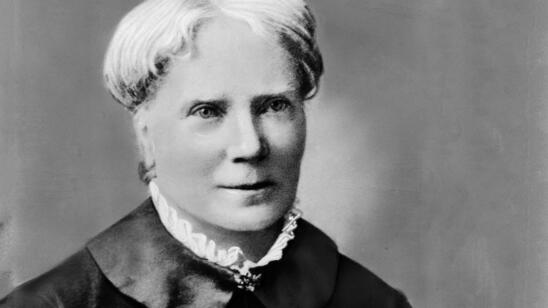
Sarah “Mic” Merritt can’t remember a time when she wasn’t curious about how things work.
“I was always taking things apart as a child to see the internals,” the U.S. Air Force master sergeant says. “I loved puzzles, math and science.”
When she was around the age of 7, Merritt’s uncle gave her an old computer and she spent every waking minute figuring out how it functioned. “I learned the BASIC programming language and would write all kinds of small, simple programs to run on that computer,” she recalls. “I was and still am incredibly curious and I think that’s a fundamental skill for success in cyber.”
Merritt, who recently earned a master’s degree from WGU’s College of IT, is one of the few women now serving as an elite Air Force cyber operator. She is currently the only active-duty female instructor for the Air Force.
An edited interview with Merritt follows.
What was your upbringing like?
I grew up in a rural community with a population of approximately 300 in northern Michigan as the youngest of five kids. I had a simple childhood surrounded by lots of family and plenty of love. My father worked for Kmart as a stockroom manager, and my mother was a cook and waitress at a couple of local restaurants. I certainly learned what hard work and determination looked like from my parents.
What led you to enlist in the Air Force?
I enlisted in the Air Force ultimately for an opportunity to make a better life for myself. My brother had served in the Marine Corps and encouraged me to think about serving too. I was struggling with paying for college, working three part-time jobs, and only able to take a few classes at a time. The Air Force offered me an opportunity to challenge myself and to do something completely different. I thought I would do an initial enlistment, four years, and get the GI Bill to help pay for college. I had no idea at the time that I would love the Air Force and make it a lifelong commitment.
How did you end up in technology and cyber warfare?
Initially, the Air Force asked me to be Security Forces, or military police. I enjoyed the role, but often found myself helping others with the computers as more and more of them came online. In 2001, I decided to leave Security Forces and apply for a role as a system administrator with the Air Force. I was accepted and I’ve been working in technology ever since.
How did your education inform your work in the military?
The certifications built into my online degree program from WGU directly tied to my daily job and the non-traditional late-night studies aligned with my needs. I was able to put a degree together with 20 years of experience, so I now have both the education and the employment background to take on any role I want. When I’m working with students, I can give them both the practical experience viewpoint and the academic viewpoint. I can better explain difficult concepts because I understand the fundamentals of how one learns, how I learned.
Did you always want to become an instructor?
Definitely not. I’ve always been a hands-on type of person. I like to take things apart and put them back together. I prefer independent work and quiet spaces. I never saw myself teaching. Yet, I love it. I love to see people come to my class with that same curiosity about how things work as I had. I think of my role more as a facilitator of learning than as a teacher. The students do the work. They seek out the information. I just guide them along the path. It’s the best job I’ve ever had.
What are some of the major challenges you’ve faced?
I’m working in a career that did not exist when I was in high school. I couldn’t have gone to college for what I do today right out of high school because there wasn’t a path. The students I train today are facing something similar. The jobs they’re going to work in don’t exist today. We don’t know what the future holds. So, how do you train someone for that future? This is a fast changing field. While there are degree programs and educational courses now, they’re often out of date shortly after they’re written.
I have to read every single day. I have to continue to take courses, pursue additional education, and stay engaged with my peers working in this industry around the world. We have to encourage and support each other and grow the next generation to take our places.
You’re a woman in a very male-dominated field. How have you dealt with that?
Women represent only a small part of military service and an even smaller part of cybersecurity. I am often the only women in a room, in a class, in any setting. It can be difficult to be seen or heard when you’re just one woman in a room of hundreds of men. The path I chose was to be bold, fearless and never give up. I’m known for speaking my mind without regard to how it might come across.
Is it that experience that inspired you to get girls into STEM fields?
I am incredibly passionate about young women getting into STEM fields. As a young woman, I was told over and over again that girls aren’t good at math, or science or whatever. The reality is every single person has unique strengths and weaknesses and they have nothing to do with gender. Girls can be good at math and boys can be good at art. We are all individuals. I’m tired of being surrounded by men when I know there are women out there that can do just as well or better in this career field.
Talk about your volunteer work.
I’ve tutored at elementary schools, fed the homeless at local shelters and aided pet rescue missions. Currently, I’m volunteering as a mentor with the Air Force Association CyberPatriot National Youth Cyber Education Program at a local high school. I’m working with an all-female team to prepare them for a cybersecurity vulnerability elimination competition. These girls are smart and talented. The competition involves finding vulnerabilities on a series of systems and the girls need to harden the systems while maintaining all of the critical services.
What leadership lessons have you learned along the way?
The most important lesson I’ve learned in life is to be true to who I am. My motto for life is, “Don’t Dream It—Be It,” from the Rocky Horror Picture Show. Whatever it is, just be it. Follow your heart, do what you love, and don’t worry about what anyone thinks or says. Don’t wait until you’re ready, because you’re never truly ready. Jump in and see what happens. If I listened to all the people who told me what I couldn’t do in life, I never would have considered a career in cybersecurity. But I was never great at listening, so here I am. I learned what I liked and what I was good at, and I made a path for myself. I’ve never looked back, just forward. I’m always asking myself, “What’s next?”

